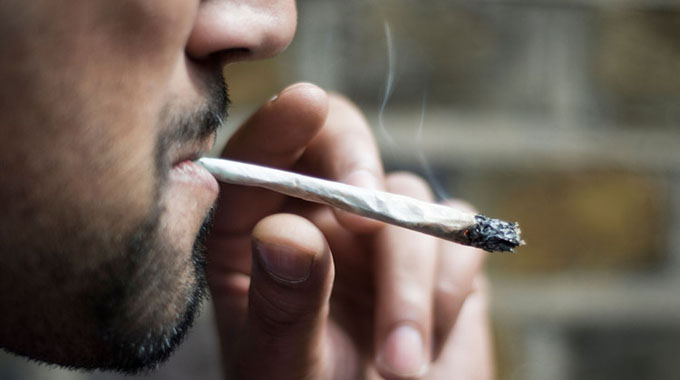Don’t underrate mbanje effects

Dr Sacrifice Chirisa Mental Health Matters
The use of cannabis has increased recently all over the world due to the legalisation drive soon to sweep through the whole globe.
The discussion below is to alert users of the untold story in the case of marijuana. As a psychiatrist working in the drug rehabilitation space, I advise a special consideration of the discourse below on the subject matter.
Several studies have linked marijuana use to increased risk for psychiatric disorders, including psychosis, more specifically schizophrenia, depression, anxiety, and substance use disorders, but whether and to what extent it actually causes these conditions is not always easy to determine.
The amount of drug used, the age at first use, and genetic vulnerability have all been shown to influence this relationship.
The strongest evidence to date concerns links between marijuana use and substance use disorders and between marijuana use and psychiatric disorders in those with a pre-existing genetic or other vulnerability.
Recent research has found that people who use marijuana and carry a specific variant of the AKT1 gene, which codes for an enzyme that affects dopamine signalling in the striatum, are at increased risk of developing psychosis.
The striatum is an area of the brain that becomes activated and flooded with dopamine when certain stimuli are present.
One study found that the risk of psychosis among those with this variant was seven times higher for those who used marijuana daily compared with those who used it infrequently or used none at all.
Marijuana use has also been shown to worsen the course of illness in patients who already have schizophrenia.
As mentioned previously, marijuana can produce an acute psychotic reaction in non-schizophrenic people who use marijuana, especially at high doses, although this fades as the drug wears off.
Marijuana has also been associated with an amotivational syndrome, defined as a diminished or absent drive to engage in typically rewarding activities.
Because of the role of the endocannabinoid system in regulating mood and reward, it has been hypothesised that brain changes resulting from early use of marijuana may cause this association.
The symptoms of abuse are categorised into these:
(1) Acute symptoms present during intoxication
Impaired short-term memory;
Impaired attention, judgement, and other cognitive functions
Impaired coordination and balance
Increased heart rate
Anxiety, paranoia
Psychosis
(2) Persistent longer than intoxication, but not permanent;
Impaired learning and co-ordination
Sleep problems
(3) Long-term due cumulative effects of repeated use;
Marijuana addiction
Impairments in learning and memory with potential loss of IQ
Increased risk of chronic cough, bronchitis
Increased risk of other drug and alcohol use disorders
Increased risk of schizophrenia in people with genetic vulnerability
An overlooked part is the physical effects of the smoke on health. Like tobacco smoke, marijuana smoke is an irritant to the throat and lungs and can cause a heavy cough during use.
It also contains levels of volatile chemicals and tar that are similar to tobacco smoke, raising concerns about risk for cancer and lung disease.
Marijuana smoking is associated with large airway inflammation, increased airway resistance, and lung hyperinflation, and those who smoke marijuana regularly report more symptoms of chronic bronchitis than those who do not smoke.
Marijuana smoke contains carcinogenic combustion products, including about 50 percent more benzoprene and 75 percent more benzanthracene and more phenols, vinyl chlorides, nitrosamines, reactive oxygen species than cigarette smoke.
Because of how it is typically smoked; deeper inhale, held for longer, marijuana smoking leads to four times the deposition of tar compared to cigarette smoking.
Treatments for marijuana use disorders
Marijuana use disorders appear to be very similar to other substance use disorders. On average, individuals seeking treatment for marijuana use disorders have used marijuana nearly every day for more than over three years and have attempted to quit more than four times.
People with marijuana use disorders, especially adolescents, in most cases, also suffer from other psychiatric disorders.
They may also use or be addicted to other substances, such as broncho, cocaine or alcohol.
Available studies indicate that effectively treating the mental health disorder with standard treatments involving medications and behavioural therapies may help reduce marijuana use, particularly among those involved with heavy use and those with more chronic mental disorders.
The following behavioural treatments can be used as well:
(1) Cognitive-behavioural therapy: A form of psychotherapy that teaches people strategies to identify and correct problematic behaviours in order to enhance self-control, stop drug use, and address a range of other problems that often co-occur with them.
(2) Contingency management: A therapeutic management approach based on frequent monitoring of the target behaviour and the provision (or removal) of tangible, positive rewards when the target behaviour occurs (or does not).
(3) Motivational enhancement therapy: A systematic form of intervention designed to produce rapid, internally motivated change; the therapy does not attempt to treat the person, but rather mobilise his or her own internal resources for change and engagement in treatment.
For more information, Highlands halfway House can help with the detoxification and management of marijuana use and other disorders.








Comments